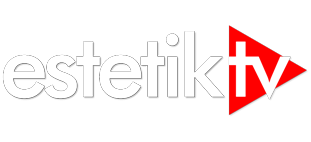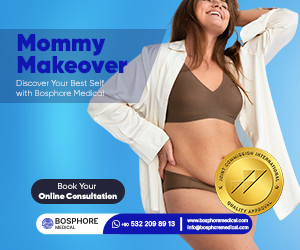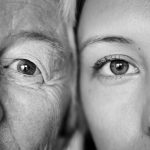The Rise of 11.11 in Aesthetic Medicine
Originally launched by Alibaba in China as Singles’ Day, 11.11 evolved into the world’s biggest online shopping event, surpassing Black Friday and Cyber Monday combined. Over the last three years, it has expanded into health and beauty services—especially in aesthetic clinics.
From Retail to Regeneration
While luxury skincare and beauty tech dominated early sales, cosmetic clinics quickly recognized the opportunity. Platforms in Asia began offering “surgery vouchers,” and European and American clinics followed with discounted consultations, non-surgical treatments, and limited-time offers on cosmetic packages.
Consumer Psychology Meets Aesthetics
In the digital era, patients increasingly view aesthetic treatments as consumer experiences. They expect promotions, convenience, and transparent pricing. 11.11 discounts appeal to:
-
Younger demographics seeking affordability and access.
-
Tech-savvy clients used to e-commerce-style shopping.
-
Patients planning procedures around seasonal offers.
Global Trends: US and Europe Join the 11.11 Wave
United States: Smart Discounts and Data-Driven Offers
In the US, plastic surgery clinics are using 11.11 as a data-driven marketing tool.
AI-supported CRM systems analyze patient profiles to tailor offers—such as laser skin rejuvenation or filler packages—based on previous interests.
Some leading clinics also collaborate with AI-based skin analysis apps (like Perfect Corp’s Skin Advisor) to personalize 11.11 promotions.
Europe: Exclusive Experiences over Price Cuts
European clinics, particularly in the UK, France, and Germany, are more cautious about direct price reduction due to ethical regulations.
Instead, they emphasize “value-based” incentives—like complimentary aftercare sessions, AI skin mapping consultations, or AR-based treatment previews.
This approach aligns with the European Aesthetic Regulation Framework, ensuring responsible marketing while keeping patient safety at the forefront.
Ethical Marketing: Balancing Discount Culture and Medical Integrity
The Fine Line Between Promotion and Pressure
Medical aesthetic services are not consumer goods—they require medical evaluation, informed consent, and trust.
While discounts attract attention, they can also encourage impulsive decision-making.
Ethical clinics should:
-
Avoid urgency-based messaging (“book now or lose discount”).
-
Highlight consultation and safety as priorities.
-
Provide cooling-off periods after purchase.
Transparent Communication
Leading clinics are adopting educational marketing, explaining treatment benefits, downtime, and risks alongside discounts.
This transparency builds trust and differentiates reputable clinics from aggressive marketers.
Digital Ecosystem: AI and AR Tools Supporting 11.11 Campaigns
To maximize both engagement and safety, many aesthetic brands now rely on AI and AR-driven marketing platforms:
| Tool | Function | Use in 11.11 Campaigns |
|---|---|---|
| Perfect Corp. Skin Advisor | AI skin analysis | Personalized treatment recommendations |
| Revieve | AR beauty try-on | Virtual consultation and offer preview |
| Arbrea Labs | 3D aesthetic simulation | Previews for surgical outcomes |
| ModMed Plastic Surgery Suite | AI practice management | Automates discount scheduling and compliance |
| MirrorMe by L’Oréal | AR facial mapping | Virtual filler simulation |
| SkinCeuticals Custom D.O.S.E. | AI serum formulation | Personalized skincare post-treatment |
| Canfield VISIA | Facial imaging & analytics | Before-and-after documentation |
| HydraFacial Syndeo AI | Smart device integration | Tracks and promotes maintenance packages |
| Etherea MX AI Platform | AI-driven energy-based device | Automated parameter setting for safe treatments |
| Cutera AviClear AI | Predictive acne treatment | Personalization based on 11.11 patient intake |
How Clinics Can Run Responsible 11.11 Campaigns
1. Create Tiered Offers
Offer a range of discounts from consultations to non-invasive services like laser facials or body contouring, instead of deep cuts on surgeries.
2. Bundle with Education
Include pre-treatment consultations, AI analysis sessions, or post-care kits to elevate value and patient care.
3. Use Transparent Messaging
Avoid “flash-sale” tone. Instead, communicate “annual aesthetic appreciation event” to maintain a professional brand image.
4. Partner with Tech Platforms
Use AI-AR integrations to offer virtual previews and simulations to patients before they commit.
5. Emphasize Patient Safety
Ensure that offers include mandatory pre-treatment assessment and that clinicians review every case individually.
The Patient’s Perspective: What to Know Before Booking
Patients are encouraged to:
-
Verify clinic accreditation and surgeon certification.
-
Ask for AI or AR previews to visualize results safely.
-
Request full informed consent documentation.
-
Consider long-term maintenance costs, not just upfront discounts.
Future Outlook: Will 11.11 Become the “Aesthetic Black Friday”?
With the rise of digital consultation tools, AI-based personalization, and AR visualization, 11.11 may redefine the global aesthetic calendar.
By 2026, analysts expect 20–25% of clinics to participate in major promotional events like 11.11.
The challenge—and opportunity—will be to balance innovation with responsibility.
Conclusion: Tech, Trust, and Transparency Define the New Era
The intersection of AI, AR, and e-commerce-driven events like 11.11 is transforming how patients and practitioners connect.
For aesthetic medicine professionals, the goal is clear: adopt modern marketing intelligently—without compromising medical ethics or patient trust.






GIPHY App Key not set. Please check settings